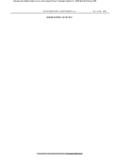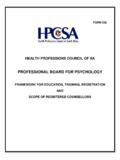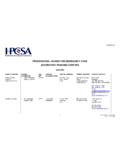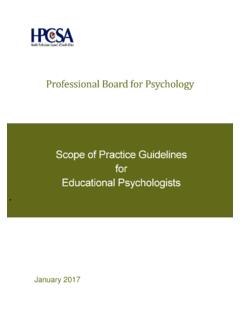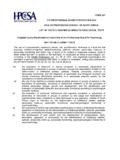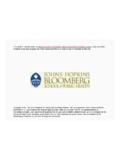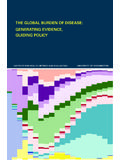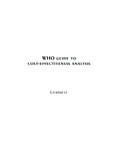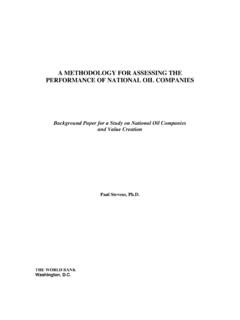Transcription of FORM 208 THE PROFESSIONAL BOARD FOR …
1 FORM 208 THE PROFESSIONAL BOARD FOR PSYCHOLOGY THE HEALTH PROFESSIONS COUNCIL OF SOUTH AFRICA policy ON THE classification OF psychometric measuring devices , INSTRUMENTS, METHODS AND TECHNIQUES Preamble The history of development and use of psychometric measuring devices , instruments, methods and techniques in South Africa have been tainted by the legacy of segregation which influenced certain stereotypical attitudes and culturally insensitive and inappropriate interventions. As a result very few tests are available that have been developed and applied with the necessary appreciation of cultural and other diversity concerns with a view to standardizing same for all South Africans. The Employment Equity Act, 1998 states that: psychometric testing and other similar assessments of an employee are prohibited unless the test or assessment being used: (a) has been scientifically shown to be valid and reliable; (b) can be applied fairly to all employees; and (c) is not biased against any employee or group.
2 The onus is thus on testers to not only be familiar with the broad domain of psychometric theory and research regarding the use of tests and test results, but to also be familiar with and contribute to specific empirical studies related to the psychometric properties of the tests they use. In the view of this, it would be unwise for psychologists not to address the development and adaptation of culturally appropriate measures as a matter of great urgency. With the expected upsurge in test development and adaptation initiatives, it is important that test developers and users familiarise themselves with policies regarding the use and classification of psychological tests, as outlined in this document (see note 1 at the end of the document). A. WHY DO WE CLASSIFY TESTS? The use of a psychometric measuring device, test, questionnaire, technique or instrument that assesses intellectual or cognitive ability or functioning, aptitude, interest, personality make-up or personality functioning, is constituted as being a psychological in view of possible harm and management implications of persons who may be adversely affected by test outcomes, requires appropriate PROFESSIONAL qualifications, skills and experience.
3 According to the Health Professions Act, Act 56 of 1974, only registered psychologists are permitted to perform psychological acts which, in relation to evaluation, testing and assessment:- "(a) the evaluation of behaviour or mental processes or personality adjustments or adjustments of individuals or groups of persons, through the interpretation of tests for the determination of intellectual abilities, aptitude, interests, personality make-up or personality functioning, and the diagnosis of personality and emotional functions and mental functioning deficiencies according to a recognised scientific system for the classification of mental deficiencies; (b) the use of any method or practice aimed at aiding persons or groups of persons in the adjustment of personality, emotional or behavioural problems or at the promotion of positive personality change, growth and development, and the identification and evaluation of personality dynamics and personality functioning according to psychological scientific methods; 2 (c) the evaluation of emotional, behavioural and cognitive processes or adjustment of personality of individuals or groups of persons by the usage and interpretation of questionnaires, tests, projections or other techniques or any apparatus, whether of South African origin or imported, for the determination of intellectual abilities aptitude, personality make-up, personality functioning, psychophysiological functioning or psychopathology.
4 (d) the exercising of control over prescribed questionnaires or tests or prescribed techniques, apparatus or instruments for the determination of intellectual abilities, aptitude, personality make-up, personality functioning, psychophysiological functioning or psychopathology; (e) the development of and control over the development of questionnaires, tests, techniques, apparatus or instruments for the determination of intellectual abilities, aptitude, personality make-up, personality functioning, psychophysiological functioning or psychopathology". Thus, according to the Health Professions Act, Act 56 of 1974, tests, measures, questionnaires, instruments, etc. that tap psychological constructs must be used, interpreted, and controlled by psychologists. Certain psychological tests (see note ii at the end of the document) can, however, be used by psychometrists, psychotechnicians, registered counsellor, and other professionals ( , speech and occupational therapists) provided that: (a).
5 The use of the test has been certified for that category of tester by the Psychometrics Committee of the PROFESSIONAL BOARD for Psychology; (b). the tester complies with whatever restrictions may be placed on the test's use relevant to the category of test user that he/she is registered as. For example, a psychometrist may administer, score and preliminary interpret certain psychological tests but not report on the results of such tests; (c). the tester seeks mentoring from a psychologist where specialist input would enhance the testing process and the understanding of the test results; and (d). the tester has been appropriately trained and has achieved the minimum competencies required to use the test. In view of the specific conditions under which psychological tests may be used by people other than registered psychologists, it is necessary to classify tests to facilitate the determination of the category of tester who may use them.
6 The Psychometrics Committee of the PROFESSIONAL BOARD for Psychology has been mandated by the BOARD to, among other things: "classify and advise on regular revision of any device, instrument, method, technique or test aimed at aiding persons or groups of persons in the adjustment of personality, emotional or behavioural problems or at the promotion of positive personality change, growth and development or for the determination of intellectual abilities, personality make-up, personality functioning, aptitude or interests. classification of a test by the Psychometrics Committee of the PROFESSIONAL BOARD for Psychology does not impose any new restrictions on a psychological test (the Health Professions Act, Act 56 of 1974, imposes such restrictions). Instead, classification allows for the relaxing of conditions under which a test can be used, which makes the test more freely available.
7 There are two general psychological test classification categories, namely: 1. Psychological Tests - which, although they can be used to varying extents by psychometrists and psychotechnicians (see notes ii, iii and iv at the end of the document), need to be under the control of psychologists as regards: a. selecting the test b. administering and scoring it c. interpreting it d. reporting on it. 2. Prescribed Tests used by other Professionals. The PROFESSIONAL BOARD for Speech, Lanuage and Hearing Professions, and Occupational Therapy and Medical Orthotics/Prosthetics, are in the process 3 of furnishing the Psychometrics Committee with lists of tests that may tap psychological constructs which they use. The relevant Boards and the Psychometrics Committee will discuss these lists and reach agreement on the prescribed list of tests for the various professionals as well as the nature of the psychometrics and assessment training which trainees receive.
8 B. TEST classification PROCESS 1. Procedure to be followed when developing a new measure or adapting an existing measure It is recognised that while tests are being developed, or adapted for use in South Africa, a wide range of standardisation and psychometric data need to be collected. In such instances, testers will find themselves in the position of using a test that has not yet been classified. Consequently, the onus is on the test developer to: a. notify the Psychometrics Committee regarding: i. the proposed name and purpose of the test, ii. the time period during which it is envisaged that the standardisation and psychometric data will be collected, iii. when the test will probably be submitted for classification purposes; and b. notify testers who will use the test for the purposes of collecting standardisation and psychometric data regarding: i. the fact that the test should be viewed as being in its development phase and that the reliability and validity of the data obtained from it cannot yet be guaranteed, ii.
9 The time period during which it is envisaged that the standardisation and psychometric data will be collected, and iii. when the test will probably be submitted for classification purposes to the Psychometrics Committee. On receiving such notification, the Psychometrics Committee will: i. record the name of the test in the Committee's annual publication, List of Tests Classified as being Psychological Tests, under a separate heading: "Tests Currently being Developed/Adapted"; and ii. take note of the time period during which the test should remain listed as being in the "Development Phase" and when it is anticipated that it will be submitted for classification purposes. Should the test not be submitted for classification purposes within a reasonable period of time, the Psychometrics Committee reserves the right to remove it from the List of Tests Classified as being Psychological Tests, pending the test developer not being able to convince the Committee that the test is still either in the development phase or will shortly be submitted for classification purposes.
10 2. Information Required when submitting a Measure for classification Before a test can be classified, information needs to be obtained regarding: a. the name of the test, name(s) of the test developer(s) and distributors, date when the test was published; b. the content domain(s) tapped by the test. This provides information on whether or not the test measures a psychological construct; c. its psychometric properties and the nature of the norm group(s), where appropriate; d. the context in which the test is used ( , assessment/ screening of normal/dysfunctional behaviour); e. whether it is administered in a group context or individually; f. the nature of administration - standardised, dynamic or interactive, computerised; 4 g. the nature of the scoring - objective, non-objective, computerised; h. the nature of the test interpretation - straightforward (cut-points), computer-generated, minor decision-making required, high level decision-making and psychological expertise required; i.

